Domestic dogs and cats may be the most conventional companion animals, or ‘pets’, but wild animals, such as snakes and lizards, and even meerkats and monkeys, are increasingly common in European homes. Wild pets commonly suffer in people’s homes because they do not adapt well to captivity and require specialised care and living conditions. Many become too much to handle and are simply abandoned, causing serious problems for the local environment and native species. Wild in nature and often unpredictable, some of these animals are potentially dangerous to people, and able to inflict severe physical injury or transmit unusual and harmful diseases.
The ENDCAP report, Wild Pets in the European Union, launched at the European Parliament on 3rd October 2012, by a bench of cross-party MEPs, provides an insight into the legal and illegal trade in, and keeping of, wild animals in European households. It provides evidence that these animals pose a threat to their, often inexperienced, keepers, other animals, indigenous species and the natural environment. It recommends that European countries and the European Commission establish effective regulations that restrict the trade in, and keeping of, wild pets.
Elaine Toland, co-author of ‘Wild Pets in the European Union’ and Director of the Animal Protection Agency said about the ENDCAP Report, “The report summarises the overwhelming evidence in favour of greater restriction on the trade in wild animals as pets. We hope the recommendations of the report, aimed at the European Commission and Member State Governments, will be useful guidance to aid effective policy design.”
ENDCAP is making the following recommendations:
- Calls on the European Community (both the Commission and the Member States) to urgently review the impacts caused by the ongoing trade in wild pets;
- Calls on the European Commission and Member States to adopt a positive (white) list of animal species, which takes into account probable invasiveness, species husbandry requirements and potential zoonotic disease transmission;
- Requests Member States provide effective and appropriate training for border agency, customs officials and other authorities mandated to oversee animal trade restrictions;
- Demands that Member States fully ensure that all imported animals from third countries must be identified, recorded and undergo a thorough veterinary assessment (for each individual animal), as required by Directive 91/496/EC; all species, whether CITES-listed or non CITES-listed, should be recorded; where appropriate, imported animals must also be accompanied by the relevant CITES permits;
- Asks for additional measures be adopted to secure appropriate care for wild animals in captivity;
- Calls for serious consideration be given to the introduction of a ban that would exclude wild-caught animals from the pet trade;
- Asks that measures are adopted to ensure that animals in trade receive the highest standards of care; and
- Demands provisions to ensure that all risks to animal and human health and safety are minimised.
Moving Forward
Following the publication of Wild Pets in the European Union, ENDCAP is keen to ensure greater restrictions in the trade, import and keeping of wild pets in the European Community. Specifically, ENDCAP seeks to:
- Ensure EU Member States recognise and take action to address the accidental or deliberate release of wild pets that can lead to the establishment of invasive alien species. The European Commission proposes to regulate the control of Invasive Alien Species, which can disrupt ecosystems, displace local fauna and can cause devastating economic costs to agriculture and natural resource industries;
- Restrict the import, trade and keeping of animal species likely to transmit disease. There are a significant number of emerging infectious zoonotic diseases that related to wild animals, commonly kept as pets and their continual trade may lead to new and modified disease;
- Encourage the Council of Europe re-emphasises the importance of the European Convention for the Protection of Pet Animals and encourage signatory countries to establish adequate levels of protection and inspection of animals to safeguard species-specific needs during trade and ownership;
- Encourage Member States to recognise the often disjointed approach between Member States’ regulations concerning the import and keeping of wild pets and promotes the adoption of a positive (white) list of animal species, which ensures EU-wide control, taking into account probable invasiveness, species husbandry requirements and potential zoonotic disease transmission.
ENDCAP proposes the adoption of a positive (white) list of species.
- For every wild animal captured and sold as a wild pet, an estimated 50 may be killed or die in transit
- The European Union is the second largest importer of live reptiles in the world
- United Nations Food and Agriculture Organisation states as many as 1.5 billion live ornamental fish are exported each year from over 100 countries, with the EU representing a major market
- According to the Pet Food Manufacturers Association (2011) there are over 42 million non-domesticated pet animals kept in the UK
- Between 2,500-7,500 of non-human primates may be kept by private individuals in the UK alone
- Member States, The Netherlands, Bulgaria, Italy, Portugal, Latvia, Lithuania, Estonia and Hungary have implemented bans on the keeping of primates and Denmark restricts the import and keeping of the majority of primate species.
- Belgium has a positive (white) list for mammals which authorises only the keeping in the home of certain species of animal
- Wild animals often harbour usual and harmful diseases: including avian influenza and psittacosis from birds, salmonellosis from amphibians, reptiles and birds, and hepatitis A, tuberculosis, monkey pox and herpesvirus simiae-B from primates
- It is estimated that 90% of captive reptiles harbour salmonella, which causes the zoonotic disease, salmonellosis
- At least 75% of pet reptiles die within their first year in the home
- Some 30% of European nations have, to date (2012), failed to sign up to the Council of Europe’s Convention for the Protection of Pet Animals (ETS 125)
- Pet Hate (2012) Warwick et al. Biologist, 59:3, pp12-18
- Visitor Behaviour and Public Health Implications Associated with Exotic Pet Markets (2012) Warwick, Arena & Steadman, J R Soc Med Sh Rep 2012;3:63. DOI 10.1258/shorts.2012.012012
- Assessing Reptile Welfare using Behavioural Criteria (2013) Warwick et al. Journal of the British Veterinary Association


NLPR.BMP-4f370b13f5.jpg)
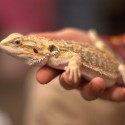
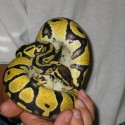


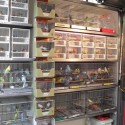
-a8f7b28aea.jpg)
-0718a26690.jpg)
-9d210b51b8.jpg)
-b837ad308c.jpg)
-3b7892d172.jpg)
-4351ebc086.jpg)
-aa8cf51a9e.jpg)
-1cdef41353.jpg)
-eafe5f2631.jpg)
-d45b5c6e4d.jpg)
-63584b72a6.jpg)
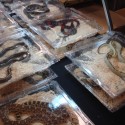
-73c31e8037.jpg)
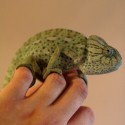
-641f968cc1.jpg)
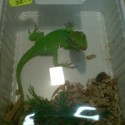
-4bd25b3c0b.jpg)

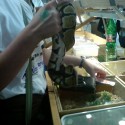

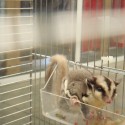
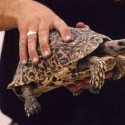
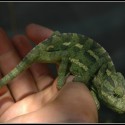
-bfc789a796.jpg)